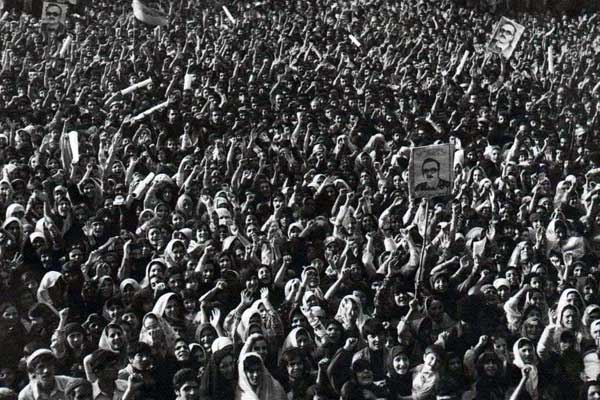
Violence, the Middle East, digital activism and the women's movement
Published: April 2, 2014
Professor Victoria Tahmasebi-Birgani comes across as modest and humble, but she has the hard-working ethic of a heroine who has lived through historic times.
Having escaped post-revolutionary, war-torn Iran in the mid-1980s, when the new regime was cracking down on opposition groups, Tahmasebi-Birgani lived as a United Nations refugee in Karachi, Pakistan for two years before immigrating to Toronto in 1988, where she has lived ever since.
“I haven’t seen very much of Canada, though I have seen the rest of the world,” she says with a laugh. “But I am always intensely cognizant, both emotionally and intellectually, of my debt of gratitude to my new home, Canada. This is my home.”
Not surprisingly, her past life in Iran forms the foundation for the “constellation of questions” she currently explores as part of her gender and feminist theory research in the Department of Historical Studies at U of T Mississauga.
“I always wanted to address the questions that I had, based on my own experiences being in the revolution,” says Tahmasebi-Birgani. “I witnessed, firsthand, how others were defaced of their humanity in order to be then easily and efficiently annihilated or murdered. In response, I have been fascinated, intellectually, with what happens before violence occurs. There are ways of thinking about, envisioning or even hearing the ‘other’ that lends itself to violence, exclusion and discrimination.
"Thinking about these processes has informed my intellectual journey and has driven much of my academic work.”
 Tahmasebi-Birgani (pictured right) earned an honours bachelor of arts in sociology and women’s studies from U of T before pursuing graduate degrees in social and political thought from York University. While working on her PhD thesis, she focused primarily on the work of French Jewish philosopher Emmanuel Levinas, known as the “philosopher of the Other.”
Tahmasebi-Birgani (pictured right) earned an honours bachelor of arts in sociology and women’s studies from U of T before pursuing graduate degrees in social and political thought from York University. While working on her PhD thesis, she focused primarily on the work of French Jewish philosopher Emmanuel Levinas, known as the “philosopher of the Other.”
“I looked at the ways in which Levinas’ idea of ethics can be applied to the nonviolent political movements, such as the Ghandian movement, and how it can deepen our understanding of nonviolent politics that we all want to strive for,” says Tahmasebi-Birgani.
In her book Emmanuel Levinas and the Politics of Non-Violence (University of Toronto Press, January 2014) Tahmasebi-Birgani provides the first examination of the applicability of Levinas' work to social and political movements.
Her research is very theoretical, covering an impressive span of interdisciplinary topics, and incorporating critical theories of women’s movements in the Middle East and feminist theories as they relate to continental and transnational contexts, which increasingly factors in with access to online information raising awareness about worldwide issues.
Part of Tahmasebi-Birgani’s work focuses on online activism, which also organically evolved within her research with its apparent nonviolent approach. Tahmasebi-Birgani has since discovered however that there are several types of violence, such as visual or textual, associated with digital activism.
“One image can be circulated, which will cause violence and injury to so many people,” she says. “You don’t have to physically hurt someone; violence can be enacted in other ways.”
Tahmasebi-Birgani says she finds a great deal of fulfillment and inspiration from the talented students, staff and colleagues she has encountered at the university.
“I love the U of T Mississauga campus and its intellectual and collegial atmosphere,” says Tahmasebi-Birgani. “I have found the UTM students, particularly the women and gender studies students, to be engaged and engaging and enthusiastic. I enjoy being part of this vibrant community very much.”
Carla DeMarco is a writer with the University of Toronto Mississauga at the University of Toronto.



